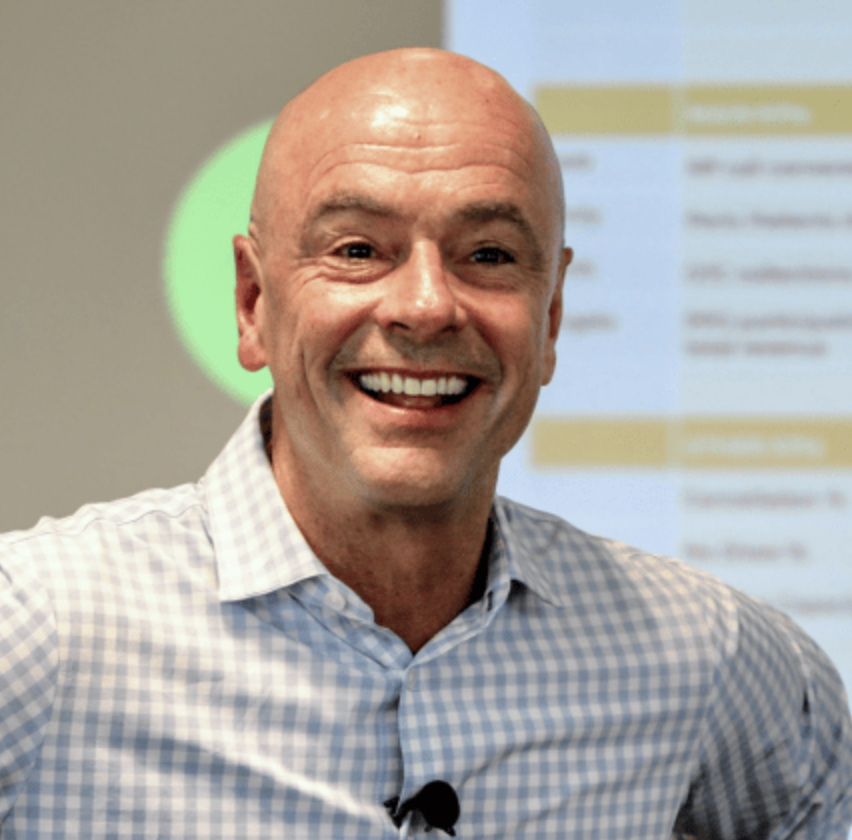When your team members are unhappy at work, it increases conflict, decreases trust, and impacts the quality of your practice. It’s so important to create an environment of engagement, where your team is encouraged to grow and develop, and as we’ve seen over the last couple years, there’s been a shift in what people want out of their lives. During our COVID-19 Conference, I had the pleasure of inviting Josey Sewell to speak, and she noted that a recent Gallup poll placed the desire for a good job above many other factors. People want more purpose in what they do, and it’s up to us to provide a workplace environment where they feel fulfilled. If we can give their job more meaning, it will add more meaning to their lives, and as I tell the practices we coach, “At the end of the day, it’s about life.”
Good vs. Great
When you consider what makes a job “good,” the baseline is generally a living wage with at least 30 hours per week. However, when you take that good job and engage the employee in meaningful and fulfilling work where they can experience real individual growth and development, it elevates that good job to a great one. Employee engagement plays such a crucial role in creating a positive culture in the workplace, but as Josey remarked, only 15% of workers are classified as actively engaged. Another 15% are actively disengaged, with the remaining 70% unengaged and on the fence. Actively engaged team members are more satisfied, but they also:
- Elevate your business
- Inspire their teammates
- Solve problems
- Make fewer mistakes
- Have better health
To get that 70% engaged and off that fence, it’s up to the leadership team to create a healthy environment where everyone operates from a place of trust. When your team is unafraid of discussing difficult topics, it fosters communication and prevents conflict. According to Patrick Lencioni, in his book The Five Dysfunctions of a Team, “Great teams do not hold back with one another. They are unafraid to air their dirty laundry. They admit their mistakes, their weaknesses, and their concerns without fear of reprisal.” Your team should be able to be who they are—faults, mistakes, screwups, and all—and know that their contributions and strengths are valuable to the practice. It’s this idea of vulnerability-based trust that should form the foundation of a great, healthy practice.
Coach, Don’t Manage
It’s the job of the leader to foster this development—they are the lever that creates change. It takes training and practice to become a great leader, and it’s so much more than just being a doer of tasks or a manager of people. In fact, people no longer want to be managed—they want to be coached. They don’t want to be told simply what to do; they want to learn, grow, and be able to do what’s necessary. As a coach, the leader needs to ask questions, support team members, facilitate development, and collaborate with the team to coordinate tasks. Note that the leader does not simply provide answers, dictate what must be done, or command and control the situation. Remember that you need to be coachable yourself, so ask for feedback, admit mistakes, and take responsibility.
The best leaders don’t just lead people—they lead through them, because people take ownership of their environment when they feel like they’re a huge part of it. The key to getting everyone on board is creating a vision and a set of core values to base your practice around. Think about your goals for the practice, what you’re trying to accomplish, and share them with your team. Anyone will tell you that I love core values, and I frequently say that “Nothing is more important than core values,” because it’s true. They are the backbone of your practice and should show up in everything you do. They are the behaviors that differentiate you from everyone else, and when your whole team is on board with your core values, it’s magical. All the crazy stuff just goes away, and your team knows they’re a part of something bigger than themselves.
Team members look for fulfillment in their workplace, and without it, their performance suffers, impacting your practice’s function. Conflict increases because no one trusts one another, and no one takes pride or ownership in their work. You don’t need to replace your entire team and start from scratch, but instead you need to work with them and find ways to engage them. Help them find purpose in what they do, and they’ll repay your investment.
Nothing destroys a business like a toxic environment, so reach out to the coaches at ACT and let them help you create an environment of support, communication, and trust—you’ll be amazed to see that your team actually looks forward to being at work. Join the Inner Circle and then register to join us at the To The Top Study Club, and put yourself in a community of peers and great minds who will support you and advise you on your journey toward a Better Practice, and a Better Life!
Kirk Behrendt is the CEO and Founder of ACT
Kirk Behrendt
Kirk Behrendt is a renowned consultant and speaker in the dental industry, known for his expertise in helping dentists create better practices and better lives. With over 30 years of experience in the field, Kirk has dedicated his professional life to optimizing the best systems and practices in dentistry. Kirk has been a featured speaker at every major dental meeting in the United States. His company, ACT Dental, has consistently been ranked as one of the top dental consultants in Dentistry Today's annual rankings for the past 10 years. In addition, ACT Dental was named one of the fastest-growing companies in the United States by Inc Magazine, appearing on their Inc 5000 list. Kirk's motivational skills are widely recognized in the dental industry. Dr. Peter Dawson of The Dawson Academy has referred to Kirk as "THE best motivator I have ever heard." Kirk has also assembled a trusted team of advisor experts who work with dentists to customize individual solutions that meet their unique needs. When he's not motivating dentists and their teams, Kirk enjoys coaching his children's sports teams and spending time with his amazing wife, Sarah, and their four children, Kinzie, Lily, Zoe, and Bo.
RECENT POSTS
995: Crisis Coverage Planning – Paul Sletten
January 14, 2026
994: Metric Mondays: Profitability – Miranda Beeson
January 12, 2026
Data Snapshot: Average Treatment Presented
January 09, 2026
992: What You Don't Know About Shared Network Agreements in Dentistry in 2026 – Sandi Hudson
January 07, 2026
Your Words Shape Your Momentum - Choose Wisely
January 05, 2026
991: Metric Mondays: Overhead – Lab Percentage – Robyn Theisen
January 05, 2026
The Three Roles That Define Dental Practice Success
January 02, 2026
990: Hiring the Wrong People? You Might Be Missing This One Crucial Step – Carlie Einarson
January 02, 2026
989: Master the Metrics – Simple Data, Big Impact – Robyn Theisen
December 31, 2025

